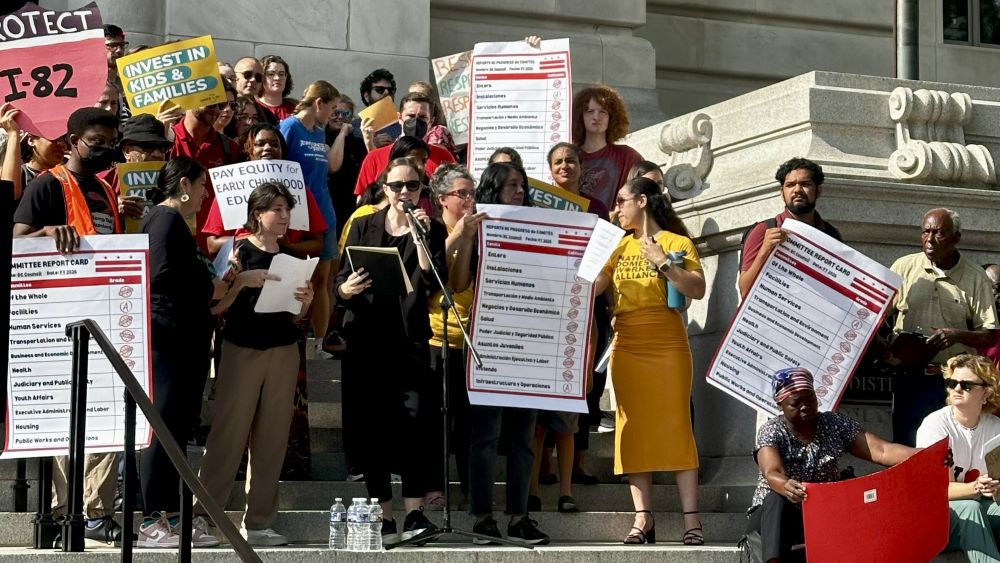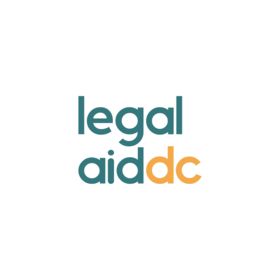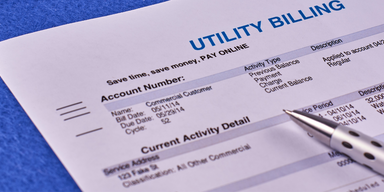
The DC Council is closing in on a final budget for the next fiscal year and, with a vote on July 28, will reshape DC’s social safety net and critical programs.
In a budget season fraught with new challenges from federal lawmakers and on a compressed timeline, DC Councilmembers have averted steep cuts to crucial programs that Mayor Bowser proposed in her budget. At the start of the budget process, we highlighted the potential cuts we were most concerned about.
Here’s where things stand now:
Health Care
Thousands still at risk of losing coverage
The DC Council must act to reverse dangerous cuts to the District’s healthcare programs for low-income residents. As is, the budget would end the DC Healthcare Alliance Program, which provides coverage to 28,000 residents who aren’t eligible for Medicaid because of their immigration status. While the Council has made some tweaks in the Budget Support Act to reduce barriers to the Alliance and slow the fast-paced cuts, those enrolled in Alliance are still set to lose access to health care coverage by 2027, and some may see immediate cuts.
The Mayor and Council are moving forward with these cuts just as more community members will need the Alliance under federal Medicaid changes that will make some immigrant groups ineligible, including refugees and asylees. It would take $48 million in next year’s budget for the Council to protect the 28,000 lives that rely on Alliance, and Legal Aid calls on members to fully fund this vital program.
The DC budget also moves forward with the mayor’s proposal to move 25,000 residents from Medicaid to a new Basic Health Program; however, this program offers fewer benefits, such as non-emergency medical transportation, dental and vision care — resulting in lower quality care and worse health outcomes.
Contact the Council about Alliance here
Housing
Some progress on rental assistance and vouchers, but more funding needed
The mayor proposed a drastic cut from $26 million to just $5 million for the Emergency Rental Assistance Program (ERAP), which helps tenants in crisis who have fallen behind on rent and are facing eviction. The Council has restored an additional $6.6 million. However, that’s still far short of the $100 million required to meet the needs of low-income tenants at risk of losing their housing.
Contact the Council about ERAP here
The Council more than doubled the number of housing vouchers for families proposed by the mayor. This is a significant step forward but, again, will lag far behind the $184.67 million needed. Most glaring is that the budget currently doesn’t add any new funds for individuals who need supportive housing.
Lastly, Legal Aid has urged the Council to protect existing affordable housing by allocating 30 percent of the Housing Protection Trust Fund to preservation. Legal Aid supports a Housing Committee amendment that would put this plan in place for one year with the goal of expanding on this measure to increase housing affordability in the future.
Public Benefits
Reversing harmful changes to family assistance
The Council’s first vote restored $100 million in cuts to programs including the Temporary Assistance for Needy Families (TANF) program, which provides cash assistance to families in need. While the Council made important progress by adding $5.5 million to fund a cost-of-living adjustment that helps TANF benefits keep pace with inflation, the budget still includes Mayor Bowser’s proposal to phase out adults who have received federal assistance for more than 60 months and to eliminate future cost-of-living increases starting in 2027—harmful changes that could affect as many as 6,500 families.
The TANF child support “pass-through” was increased from $150 to $200 — a significant win that ensures more child support payments reach the children they are intended to support. Under current rules, when a family receives both TANF benefits and child support, most of the child support is intercepted by the government. This $50 increase means more money goes directly to families.
The Council kept funding flat for food assistance through the SNAP program, and the Give SNAP a Raise Amendment Act of 2022 will be repealed beginning on Oct. 1, 2026.
Access to Justice
Funding restored for legal services!
Mayor Bowser once again proposed a 67% cut to the Access to Justice program’s $31 million budget, which would have prevented many DC residents from accessing legal services. The Council fully restored funding, and Legal Aid thanks Council members for ensuring that people have support in securing food assistance, avoiding eviction, getting protective orders and so much more.
While the Council has made important strides in reversing some of the mayor’s most harmful budget proposals, far too many residents will still struggle with housing, healthcare, and basic assistance.
By raising revenue through taxes on the District’s wealthiest residents, the Council can safeguard a stable safety net that protects all residents, especially DC’s most vulnerable communities.




